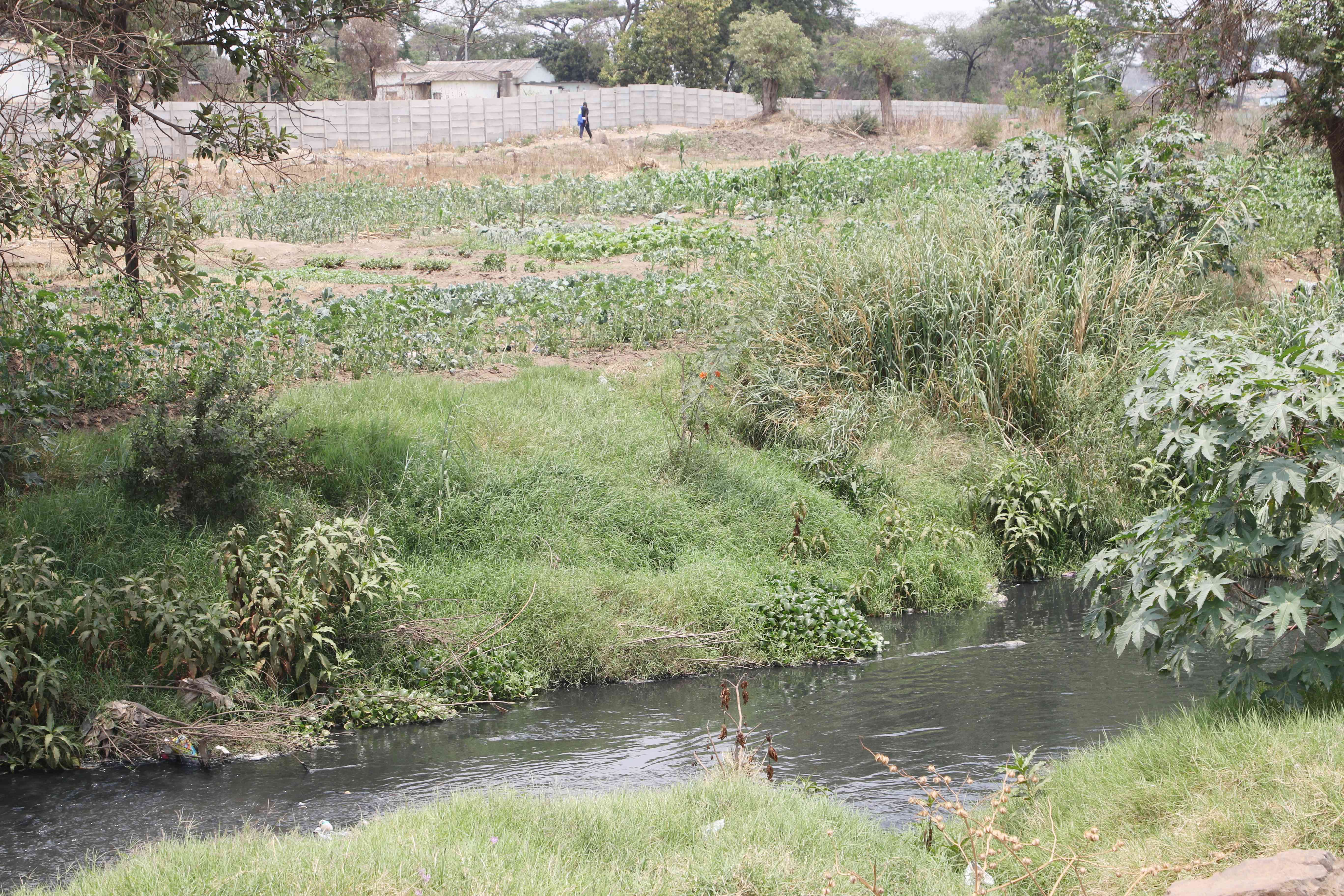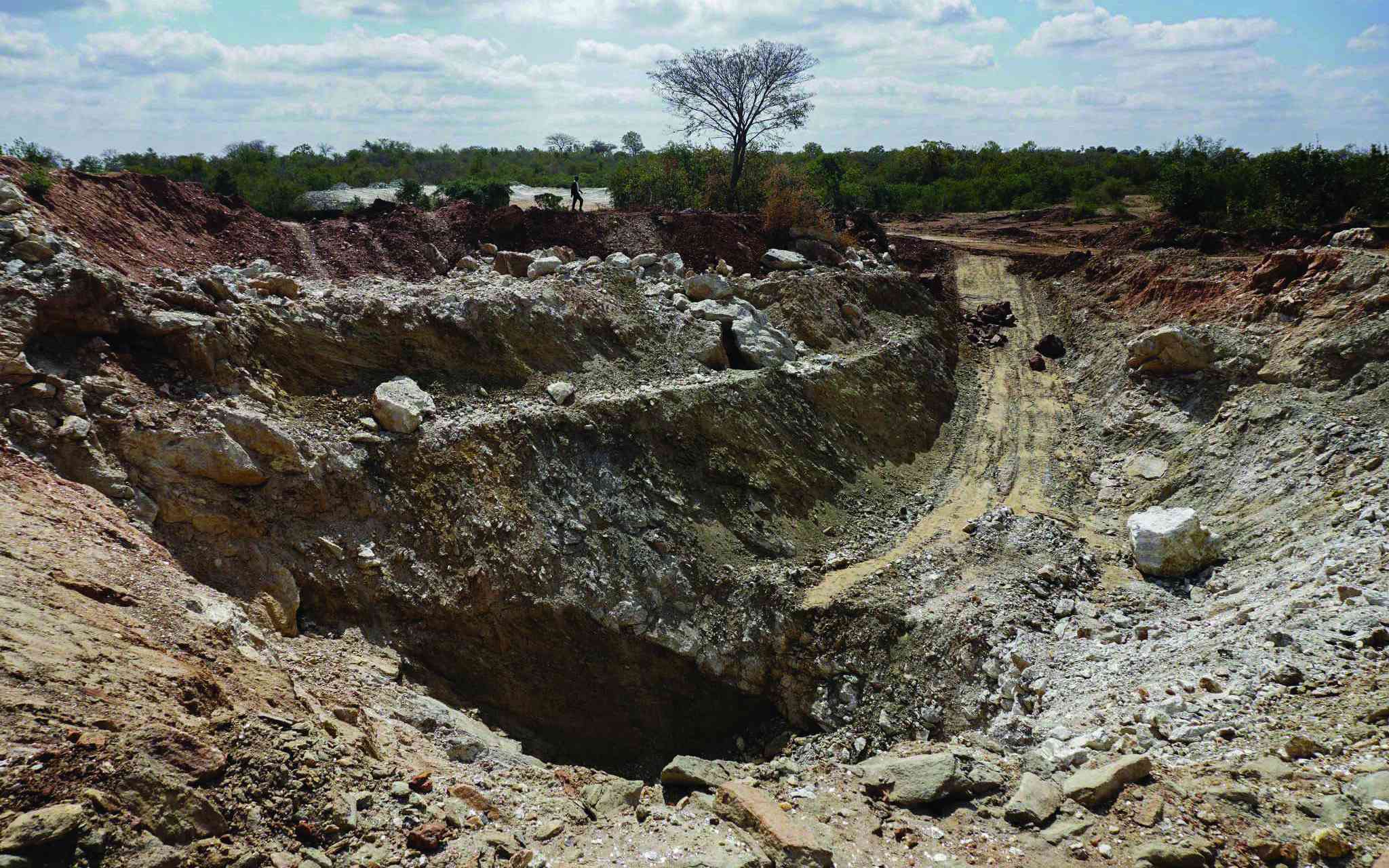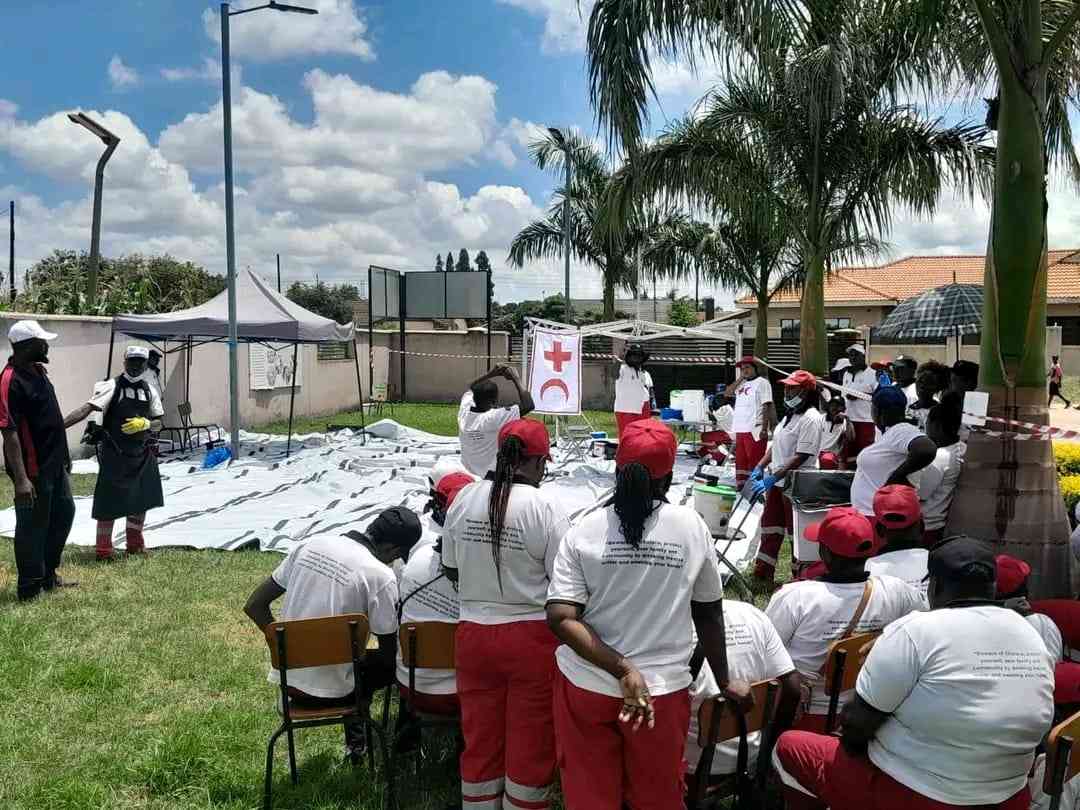
It was only a few hours after Tinashe Moyo (31) from Harare's Budiriro suburb had eaten sadza and vegetables that he began to have an upset stomach.
What started as mild stomach cramps grew sharper and more intense with each wave of discomfort being stronger than the previous one.
By the end of the day, Moyo was in unbearable pain, sweating, and unable to stand.
When he arrived at the clinic, the doctor told him that he had contracted a parasitic infection, likely from contaminated vegetables.
He was later admitted at a clinic in Budiriro.
An investigation by Truth Diggers uncovered that Moyo’s case was not an isolated case.
Truth Diggers is an investigative arm of Alpha Media Holdings (AMH), publishers of The Standard, NewsDay, Southern Eye and The Zimbabwe Independent.
This publication established that vendors in the city’s central business district, around Lake Chivero, and other parts of Harare were selling produce irrigated with contaminated sewage water; a health risk.
- Deadly option: Struggling residents turn to sewage-fed vegetables as Harare water crisis escalates
- Mortuary work, the new ‘saviour’ for unemployed youths
Keep Reading
Truth Diggers also found out that some of the vendors are drawing irrigation water directly from highly polluted sources like Mukuvisi River.
This river, notorious for its foul odour and infestation of flies, served as a water source for some vegetable growers.
Other vendors are resorting to collecting sewage-contaminated water to irrigate their crops, a move that can cause severe illnesses among consumers.
The water carries a hidden load of contaminants including bacteria such as E. coli and Salmonella, as well as various intestinal parasites that thrive in untreated sewage.
Local vendors at urban markets, some of whom source vegetables from these urban farms, acknowledged the problem to Truth Diggers, but said consumer awareness was low.
“Most people do not ask where the vegetables come from or how they are grown,” one vendor explained.
“So we use the water for our vegetables so that they grow quickly. It’s a form of manure.
“The leaves will be so big and green.”
At local markets, the sight of leafy, green vegetables will be enticing — spinach, kale, and other greens are displayed in neat bundles, each bundle more vibrant and appealing than the last.
Yet beneath their healthy appearance lies invisible dangers which are parasites, bacteria, and other contaminants.
Investigations also revealed that vendors, either unknowingly or because of limited resources to ensure food safety, continue to sell these contaminated vegetables to the public.
These vegetables are a staple in many households, and their presence is essential to the diets of many families.
A resident from Epworth, Tinashe Karombo, said they had little choice if they were to provide for their families.
“Water is not coming out of our taps, and we have no other way to grow our crops. It’s either we use the water that’s available or we starve,” Karombo said.
Harare’s sewage system has long been a source of concern, with untreated sewage often spilling into the streets and nearby agricultural plots.
These conditions create an environment where harmful pathogens can thrive, contaminating crops and making it difficult for residents to avoid exposure to health risks.
Truth Diggers also established that the root cause of this growing health risk is linked to the prolonged water crisis, exacerbated by the El Niño-induced drought.
With taps running dry in urban areas, the residents who are desperate to keep their crops alive are resorting to using sewage water, as an alternative water source, to irrigate their vegetables.
Truth Diggers took random samples of vegetables from a few high density suburbs in Harare for laboratory tests and results from two suburbs, Glen View and Budiriro, showed that the vegetables were not safe for consumption.
Tests carried out by Omnipath Medical Laboratory showed alarming levels of parasitic contamination.
The parasites found were mainly related to faecal matter.
According to tests by the laboratory, the parasites, which were found in the vegetables were ascaris lumbricoides.
The cause of ascariasis can lead to a range of symptoms from malnutrition and abdominal pain to severe complications like small-bowel obstruction and peritonitis.
Other parasites found were toxocara infections, often spread through contact with animals and can cause fever, coughing, and even damage to the eyes.
Meanwhile, balantidium coli, which causes balantidiasis, can lead to ulcerative colitis and severe dysentery.
Omnipath Medical laboratory is a full diagnostic laboratory involved in the processing of samples in the disciplines of immunology, haematology, and serology, among other scientific tests.
The vegetables were examined under a microscope after a specialised washing and centrifuge process.
“The freshly harvested vegetables were obtained from one random site in Dzivarasekwa, Glenview and Budiriro,” reads the report.
“The samples were transported to Omnipath medical laboratory within one hour of collection in order to preserve and enable proper identification of parasites.
“At the laboratory, a portion (200 g) of vegetable was washed separately in 500 mL of normal saline to detach the parasitic stages.
“After overnight sedimentation of the washing solution, 15 mL of the sediment was sieved into a centrifuge tube, to remove undesirable matter followed by centrifuging at 3,000 rpm for five minutes.
“After centrifugation, the supernatant was decanted carefully without shaking and the sediment was examined under a light microscope using x10 and x40 objectives.”
According to the laboratory findings, vegetable samples from Glen View contained balantidium coli cysts and ascaris lumbricoides eggs, while those from Budiriro were contaminated with toxocara species eggs.
“Ascaris lumbricoides, the causative agent of ascariasis, is the most common parasitic worm in humans,” reads part of the report.
“Ascariasis can be asymptomatic, causing only malnutrition and growth retardation, or it may present with abdominal pain, nausea, vomiting, bloating, and diarrhoea.
“Complications of ascariasis are related to worm burden and location of the relatively large nematode.
“They include acute abdomen, upper GI bleeding, small-bowel obstruction, volvulus and intussusception, peritonitis, biliary colic, acute cholecystitis, acute pancreatitis, acute cholangitis, and hepatic abscess.
“Toxocariasis is an infection caused by a parasite that spreads to people from animals, usually dogs and cats.
“It's also known as "dog roundworm" or "cat roundworm", after the parasite that causes it. Many people who are infected don't have any symptoms.
“But in some people, toxocariasis causes fevers, coughing, or abdominal pain and may damage the eyes.
“Balantidiasis may cause ulcerative colitis characterized by diarrhoea or dysentery, tenesmus, nausea, vomiting, and abdominal pain. In severe cases, blood and mucus may be present in the stool.”
Omnipath Medical Laboratory also confirmed that some vegetables sold in some of the city's markets are carrying dangerous parasites, prompting an urgent call for government intervention to protect public health.
“The findings of this small exercise have shown that there is a high infestation of commonly eaten vegetables and this could be a significant mode of transmission and sustenance of some parasitic infections,” the report added.
“Standardisation and monitoring of the quality and safety of vegetables sold in the markets should be pursued and strictly enforced.
“Handling by vendors, poverty and unhygienic conditions of preparation in food service or home settings are also implicated as the causes of contamination.”
The laboratory said lack of awareness and laxity in food hygiene practices could lead to various foodborne illnesses.
It warned that even seemingly fresh produce can harbour dangerous pathogens if not handled or washed correctly before consumption.
It also said there was a need for adopting measures that cover guidelines for irrigation, water quality, and usage of untreated night soil as fertilizer.
Public health expert Willard Nduma Mbiri told Truth Diggers that about 300 million people worldwide suffer from severe illnesses related to parasitic contamination, with 200 000 deaths reported annually in developing countries.
He said Zimbabweans, particularly those in urban areas, face increasing risk if immediate steps are not taken to address poor food hygiene practices.
“In most developing countries it has been reported that there is an increasing number of cases of food-borne illnesses mainly linked to eating fresh fruits and vegetables,” Mbiri said.
“Parasitic infection leads to about 300 million severe illnesses with approximately 200 000 deaths occurring in developing countries.
“In order to succeed in controlling intestinal parasites, it is important to put concerted effort to reduce and eliminate the potential sources of infection.
“The burden of parasitic contamination has to be made public and our people have to know what’s hidden in these favourite vegetables we consume daily and our farmers also need to be educated on the possible stages where the farm produce can be contaminated.”
Experts told this publication that the contamination stemmed from the widespread use of untreated sewage water for irrigating crops, particularly in Harare.
Harare medical doctor and public health expert Johannes Marisa said the city's deteriorating sanitation infrastructure has exacerbated the spread of parasitic infections, particularly the transmission of Ascaris lumbricoides (roundworms).
“We have always had contaminated vegetables especially considering that there is raw sewage flowing everywhere in Harare,” Marisa said.
“Ascaris lumbricoides eggs can be shared through stool, physical contamination like handshakes, soil etc.
“So it is very difficult to stop the transmission of such worms due to poverty, poor hygiene and eating contaminated food.
“Some people even walk bare foot due to economic hardship, thus posing health risks.”
He said there was need for people to properly wash and cook their food before eating in order to kill the parasites.
Zimbabwe Nurses Association president Enock Dongo warned that the implications of this practice could be catastrophic if left unchecked.
“We are seeing a rise in gastrointestinal diseases linked to parasitic infections, and untreated sewer water is one of the most significant contributing factors,” Dongo said.
He said the health impact of these infections ranges from mild symptoms such as diarrhea and nausea to severe complications, including intestinal damage and malnutrition.
In some cases, particularly among children and those with weakened immune systems, the infections can be fatal.
Community Working Group on Health executive director Itai Rusike warned about the high prevalence of parasitic diseases in urban environments where public health measures are being neglected.
“It is very true that there is high prevalence of parasitic diseases especially where public health measures are being ignored as is the case with our urban environments,” Rusike said.
“When there is limited availability of piped water, the risk of bacterial and parasitic contamination increases as hands, utensils and food cannot be thoroughly cleaned.”
He highlighted the growing concern around parasitic infections due to inadequate water and sanitation systems in Zimbabwe’s major cities.
Combined Harare Residents Association programmes manager, Reuben Akili, said there was need for Harare City Council to enforce by-laws and improve the hygiene standards of the vending sector, which has been largely left unchecked.
“What you have to know is that the vending sector has not been regulated,” Akili said.
“People are just concentrating on making money, they are not maintaining hygiene standards.
“There is even a serious shortage of vending stalls to the extent that people are now selling their vegetables near sewage.
“If you go to Mbare Musika, there is sewage which is flowing just 20 metres from the place.
“Some of the storage facilities for these vegetables are contaminated.”
He stressed the importance of tracing the sources of contamination, collecting refuse, and repairing burst sewage pipes to prevent further health hazards.
“The Harare City Council should also trace where these contaminants are coming from, collect refuse and make sure that they attend to all burst sewers,” he said.
“The council should even take samples of these vegetables from the vendors to trace where they are coming from.”
Harare mayor Jacob Mafume said the widespread selling of contaminated vegetables posed a serious threat to the health and well-being of residents.
“We understand the economic pressures on our communities, but it is imperative that we prioritise safe and sustainable practices,” Mafume said.
“My office is actively working with public health officials to address this, and we will be looking at ways to increase oversight on water sources used for irrigation.”
Government has tried to mitigate the situation by rationing water and drilling new boreholes in some areas, but these efforts have not been sufficient to meet the needs of the population.











